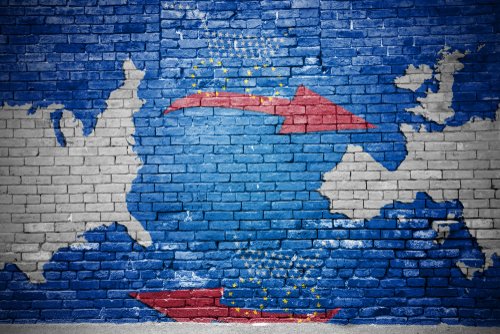A translatlantic approach is crucial to better data use in Europe, writes Christian Ehler MEP.
Brussels (Brussels Morning) The world is undergoing deep digitalised transformation where the way we use, share, exchange, develop and store data will be a fundamental building block to determine how this digitised world will look in years to come.
Building on a human-centric and sustainable approach to digitalisation, we want the EU to emerge as a world leader in data-driven competitiveness and prosperity. To achieve this goal, it will be crucial to work constructively with our like-minded trading partners to create a global marketplace shaped by our shared values.
Today, the EPP Group will hold a Data Summit to discuss how we can ensure data-driven prosperity and how we can shape the global data-driven market. For the first time, a high official of the new Biden administration has been invited to the European Parliament to discuss digital transatlantic collaboration.
Europe needs a coherent vision on how to achieve a truly European and truly Digital Single Market in which data can flow freely in line with European values; a market that offers open strategic autonomy to engage with the rest of the world and which supports European citizens and businesses alike, empowering them to tap into vast digital market opportunities.
Where are we now?
The European Union has been shaping digital market regulation for decades, not always successfully and Europe did not lead the last digital revolution. However, GDPR rules have shon that Europe can show regulatory leadership and in this Parliamentary term we will build on that achievement to consolidate Europe’s long-term approach towards data governance, both personal and anonymised.
Currently the European Parliament is playing its role a co-legislator of the Data Governance Act, the Digital Services Act and the Digital Markets Act. Later this year the Commission is expected to put forward several additional legislative proposals in this field, like the Data Act and a regulatory initiative on Artificial Intelligence. All these new initiatives will have to align with existing legislation, like the Data Protection Regulation (GDPR) and the Public Sector Information Directive. Furthermore, the Commission will update its industrial policy to reflect the reality created by the COVID-19 outbreak. This will lay the foundations for Europe’s future competitiveness for which data will be an essential ingredient. That is why we need to get our approach to data right.
Looking forward
As technologies become more sophisticated, the EU and US must set the rules of the game for data flows, including vis-à-vis cutting-edge technologies like Artificial Intelligence (AI). As technology continues to evolve so rapidly, we need a structured approach for transatlantic collaboration. That is ultimately a matter of mutual security and shared values.
The US and EU must work together to ensure these conditions, starting with the urgent need for a new system governing transatlantic data flows. These rules must ultimately be human-centred and geared at fostering innovation and competitiveness for our prosperity.
Together with my colleagues, Andreas Schwab MEP and Axel Voss MEP, I am organising an online event to facilitate the development and dissemination of this Digital Single Market vision.
During the opening session, there will be a transatlantic exchange of views with Christopher Hoff representing the new Biden Administration, Commissioner Breton and Sichel as chair of the Digital New Deal thinktank to set the global stage for data policy, which will be followed by two expert panels to dive deeper into what Europe needs to secure the data future we want. The first panel will focus on the framework conditions needed for a successful data-driven future for Europe. The second panel will focus on how we can optimise the role that data plays in a competitive, green and value-driven future for Europe. We hope you can join us.




